Wiederholter Erfolg bei FFG GigaLab
Am 27. und 28. November 2024 fand in Wien die GigaLab-Veranstaltung der FFG statt. Bei diesem Ideenworkshop erarbeiten zehn bunt zusammengewürfelte…
In addition to a solid basic knowledge of computer science, mathematics and English, the Bachelor's degree course in Information Technologies enables students to specialize in various professional fields. From the very beginning of the course, there are three branches of study to choose from:
Geoinformation and Environment is only offered on a phased-out basis and no longer starts.
Due to the almost everywhere available Internet, the desire and the requirement to integrate sensors and sensor systems for the acquisition of measured values into the Internet community is growing. Measured values are no longer classically generated and displayed locally, but stored on servers in the Internet as a data package. One now speaks of machine-to-machine communication, M2M. The data packets are then collected and processed. This process takes place in industry, health care, households - in fact in every sector. The requirements for infrastructure and data security are necessarily increasing.
In the elective module "IoT" these mentioned focal points are analysed and worked out together with students, so that they are able to design, build and verify such contemporary requirements.
Whether mobile communication in everyday life and at work, intelligent use of transport or the control of our homes - we are networked and on the move at the same time. Mobility can increase personal freedom, enhance quality of life and also open up career prospects. In the Mobile Systems Development major, students learn about the latest developments in the field of mobile technologies. In addition to mobile applications (apps), topics such as middleware, architecture and management of mobile systems, digital signal processing, processing of sensor and localization data (GPS, Galileo) and interface design are covered.
The elective subject “Artificial Intelligence” teaches the practical basics of AI. Students learn about simple machine learning methods and their application in areas such as image recognition, language processing and data analysis. The focus is on the use of existing AI tools and their integration into IT systems. Practical exercises help to develop an understanding of the use of AI. In addition, the ethical and social aspects of AI technologies as well as their opportunities and challenges in the IT sector are critically examined.
Winterterm 2025
Period I: 01.11.-15.03.2025
The semester starts in October - we only offer intake in winterterm!
The start of lectures can be found in the individual timetable which is available after enrollment.
Monday to Friday all day
partly on Saturday
Study Guidance
Book your personal appointment right now!
You can find out more about our advisory services, events and fairs on our website.
Language of Instruction English:
IELTS 5.5 in all sections
TOEFL higher intermediate in all sections
Cambridge B2 in all sections
Winterterm 2025
Period I: 01.11.-15.03.2025
Period II: 16.03.-15.05.2025
Period III: 16.05.-15.07.2025
Period IV: 16.07.-30.09.2025*
For applicants from outside Europe applications are only accepted within Period I.
*We reserve the right not to open the period or to close it early.
The semester starts in October - we only offer intake in winterterm!
The start of lectures can be found in the individual timetable which is available after enrollment.
Tuesday & Wednesday or Wednesday & Thursday 16:00 - 21:00 h
Friday 14:20 h
Saturday 8:30 h
Study Guidance
Book your personal appointment right now!
You can find out more about our advisory services, events and fairs on our website.
We offer:
All offers can be booked online
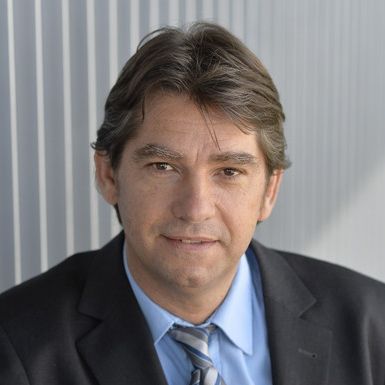
FH-Prof. Dipl.-Ing. Dr. techn. Christian Menard

HTL graduates can shorten their bachelor's degree by up to one year if they have passed selected entrance examinations before starting their studies and have completed a relevant HTL. The entry requirement for the 2nd or 3rd semester is a grade point average of 2 or better in the last two annual reports (4th and 5th grade) of the HTL.
Entry into the 2nd semester is possible on an individual basis after reviewing the documents.
With over 100 Study & Work partner companies and organizations, CUAS offers students the opportunity to combine studying and working!
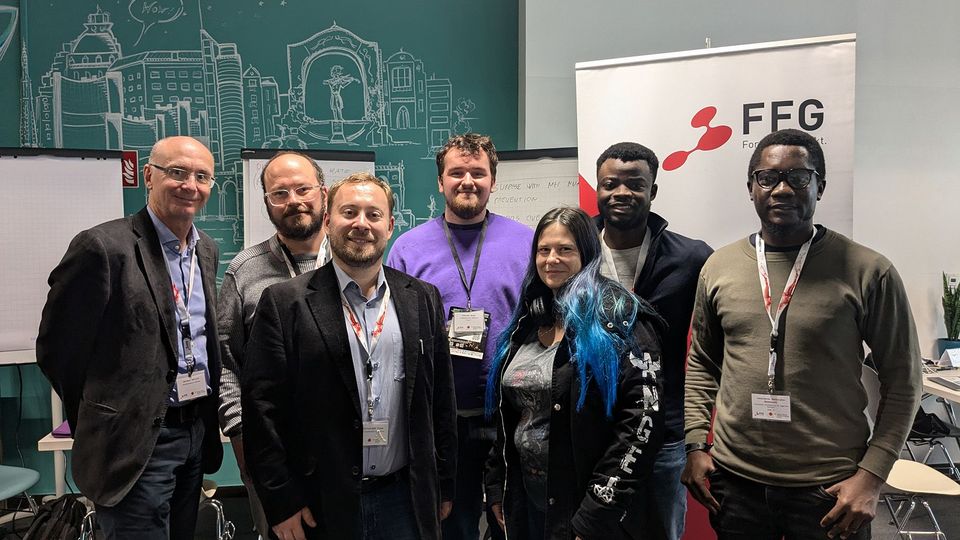
Am 27. und 28. November 2024 fand in Wien die GigaLab-Veranstaltung der FFG statt. Bei diesem Ideenworkshop erarbeiten zehn bunt zusammengewürfelte…
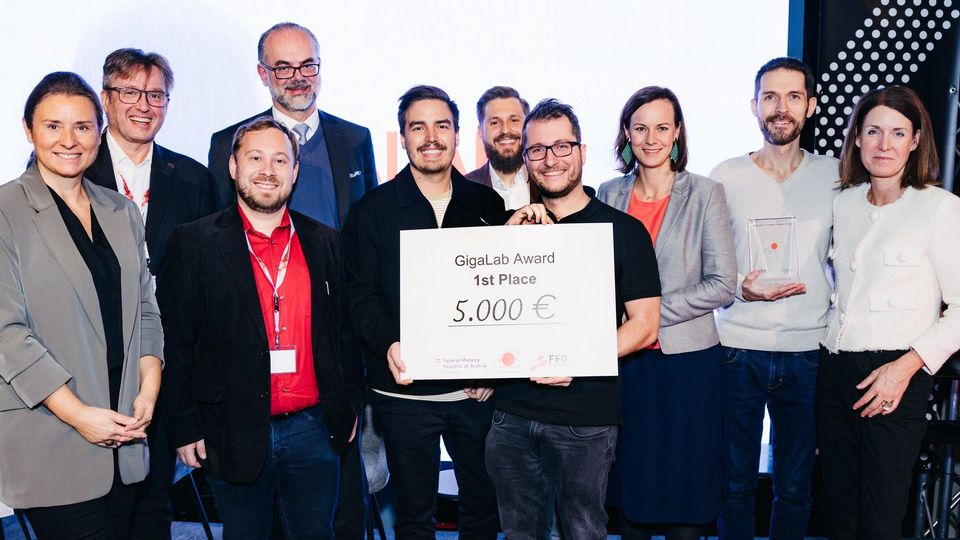
The GigaLab event, organized by the Austrian Research Promotion Agency, took place in Vienna from 21 to 22 November. This is a kind of hackathon in…
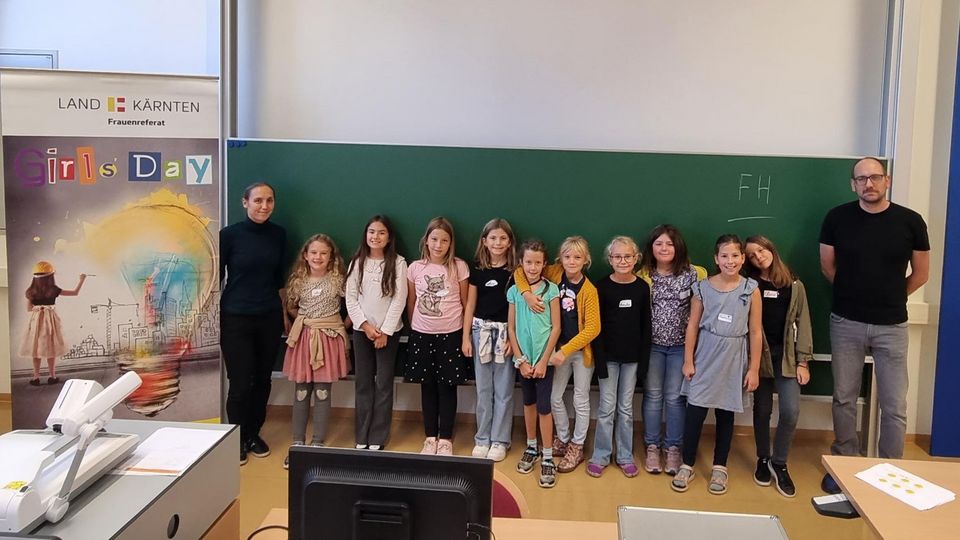
Mädchen tauchen in die spannende Welt der Technik ein“ – das ist das Motto der jährlich stattfindenden „Girls‘ Days“ an der FH Kärnten im…
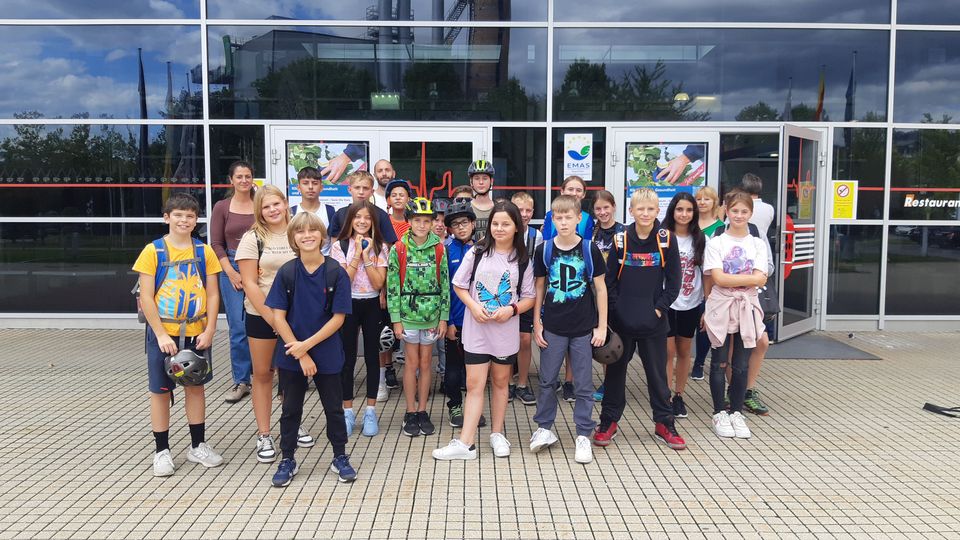
Am Mittwoch, den 20. September sowie Donnerstag, den 21. September 2023 besuchten die Klassen 3a und 2a der Sportmittelschule Lind ob Villach den…
FH-Prof. Dipl.-Ing. Dr. techn.
Christian MenardFH-Prof. Dipl.-Ing. Dr.
Gerald GruberFH-Prof. Priv.-Doz. Dipl.-Ing. (FH)
Günther Grabner, Ph.D.Dipl.-Ing.
Jürgen ThierryDI
Simon Grasser, MBAMag.a
Michaela Gollner, MSc.Mag.a
Sandra Filipic-KlinarDI Dr. techn.
Andreas Daniel HartlFH-Prof.in Univ.-Doz. Dr.
Elke HochmüllerFH-Prof. Dipl.-Ing. Dr. techn.
Dominik Rauner-ReithmayerFH-Prof. Dipl.-Ing. Dr.
Peter BachhieslDI (FH)
Mario WehrDipl.-Ing.
Michael Karl Reiner, BScDI (FH)
Michael DorferIng.
Peter GrabnerIng.
Ulf Erich ScherlingMag. Dr.
Ralf BlahaDipl.-Ing. (FH) Dipl.-Ing.
Markus HaringDipl.-Ing.
Günter ObiltschnigDI
Lukas Sommeregger, BScDipl.-Ing. Dr.
Heinz Stanek, MBADr. med.
Martin StultschnigIng.
Michaela Wartbichler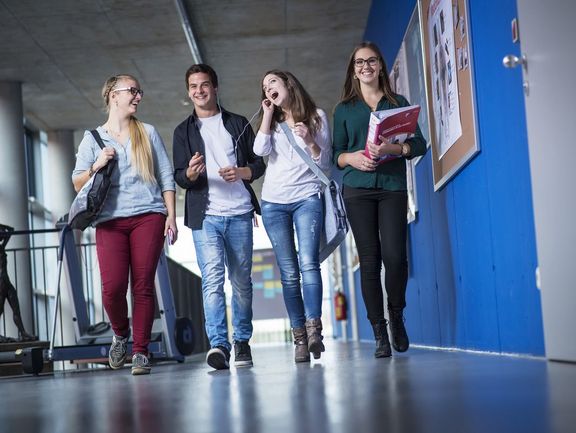
Klagenfurt combines joie de vivre, nature and culture. The city of just over 100,000 inhabitants on Lake Wörthersee is a recreational area that fulfils every wish. Slovenia and Italy are not far away, the mountains are within reach. Klagenfurt's cultural scene is also vibrant, with clubs, stages and museums. The Old Square with its many shops, restaurants and cafés is the centre of city life. The idyllic Lendkanal connects the city with the lake and, like Kreuzbergl, is a popular destination for amateur sportsmen and nature lovers.
The campus in Primoschgasse has perfect transport connections - a separate bus line stops directly in front of the FH on the Südring. The view from the roof terrace onto the mountain panorama surrounding Klagenfurt offers the perfect space for relaxing breaks.
Explore Campus Klagenfurt–Primoschgasse on a 360° Tour.
coming from the west (from A10, A11) along the southern motorway A2:
Exit Klagenfurt/Wörthersee (Minimundus), along Südring for about 7 km, turn left at the Südring/Gerberweg intersection (BP gas station), after 150 m turn right to FH Kärnten - Standort Klagenfurt, Primoschgasse 10.
Coming from the east along the southern motorway A2:
Exit Klagenfurt-Ost, turn into town (left), direction Klagenfurt-Zentrum after 1 km on Völkermarkterstraße (right) after about 2.5 km turn left at the intersection into Südring (Kika), at the intersection Südring/Gerberweg (BP gas station) turn into town (right), after 150 m turn right to FH Kärnten - Location Klagenfurt, Primoschgasse 10.
Coming from the south along the Rosentalerstrasse B91:
turn right at the intersection Rosentalerstrasse/Südring (PSK) into Südring, along Südring for about 2.5km. turn left at the intersection Südring/Gerberweg (BP gas station), after 150 m turn right to FH Kärnten - Location Klagenfurt, Primoschgasse 10.
Coming from the north along the St. Veiterstrasse B83:
Turn left, follow St. Veiterring into Völkermarkterring (right) southbound, extension Völkermarkterring into Lastenstraße until you reach the railway underpass (approx. 800m), extension Lastenstraße into Gerberweg, after approx. 750m turn left to FH Kärnten - Location Klagenfurt, Primoschgasse 10.
Klagenfurt main station, footpath to Südpark along Bahnstraße (direction east), footpath along Gerberweg to Primoschgasse to FH Kärnten - location Klagenfurt, Primoschgasse 10 (direction south), duration from main station about 20 min.
Airport Klagenfurt, by taxi to the FH Kärnten - location Klagenfurt, Primoschgasse 10 (duration about 20 min), or by public utility bus to Heiligengeistplatz, change to line 40, 41, 42, 70 or 71, duration from airport about 50 min.
Primoschgasse 8–10
9020 Klagenfurt, Austria
+43 5 90500 3101
engineering-it[at]fh-kaernten[dot]at
+43 5 90500 3301
gesundheit-und-soziales[at]fh-kaernten[dot]at
Erkunden Sie den Campus Klagenfurt–Primoschgasse bei einer 360° Tour.
The Villach region combines tradition, cosmopolitanism and quality of life with the advantages of an innovative business location. Villach, a small town with about 60,000 inhabitants, is an international high-tech location with groundbreaking cooperation between science and industry and is also increasingly developing into a start-up town.
Situated directly at the intersection of three cultures, Villach, situated on the Drava river, is an important traffic junction in the Alps-Adriatic region. This special geographical location and the beautiful landscape around Villach and in the federal state of Carinthia have made the region a popular holiday destination for generations, further beyond the borders. The drinking water quality of the lakes and the particularly clean air make Villach and its surroundings an environmental paradise.
In addition to its geographical advantages, Austria also leads the world in terms of its social and health care system and is considered a particularly safe, prosperous and liveable country.
Despite the above-average prosperity and the comprehensive state social benefits, Villach compares favourably with many international destinations. The "small town bonus" comes into its own here and makes everyday life affordable.
Explore Campus Villach on a 360° Tour.
Make a virtual walk through the Science & Energy Labs – T10.
Motorway exit Wernberg, then on the B 83 approx. 2 km in the direction of Villach, after the Villach town sign the B83 passes under the A2 motorway, and then immediately right the first exit in the direction of MAGDALENEN SEE. Following the signs for Magdalenen See, the road leads through a small wooded area, always follow the road, after an S-curve past Magdalenen See (left) always straight ahead, cross the southern railway line and go uphill directly into the centre of St. Magdalene. Turn right at the top of the hill, down the road, the grounds of the technology park are already visible to the south, the chimney of the combined heat and power plant, and directly in the sharp right-hand bend turn left onto the grounds of the technology park.
Motorway exit Villach/Ossiacher See, then approx. 2 km in the direction of Villach, on the right is Gasthof Seehof, on the left is Lake Vassach, continue on the B33 left in the direction of east, Wernberg, Klagenfurt, always follow the B33, after approx. 4 km turn right in the direction of Magdalenen See. The road leads through a small forest, always follow the road, after an S-curve past Lake Magdalenen (left) always straight ahead, cross the southern railway line and go uphill directly into the centre of St.Magdalen. Turn right at the top of the hill, down the road, the grounds of the technology park are already visible to the south, the chimney of the combined heat and power plant, and directly in the sharp right-hand bend turn left onto the grounds of the technology park.
The bus company Dr. Richard runs from Villach city to the FH in about every 15 minutes. The timetables are coordinated with the timetables of the ÖBB.
Europastraße 4
9524 Villach, Austria
+43 5 90500 7700
villach[at]fh-kaernten[dot]at
Explore Campus Villach on a 360° Tour.
In order to be admitted into a bachelor degree program at the Carinthia University of Applied Sciences at least one of the following criteria must be fulfilled:
Moreover, there are degree program specific additional prerequisites as well as more comprehensive information regarding admissions on the individual web pages of the corresponding degree program. The German University of Applied Sciences (Fachhochschule) entrance qualification certificate is only valid as an admission prerequisite for an Austrian UAS/FH bachelor degree program when combined with an applicable vocational certificate.
Persons in their last year of school may apply for a study place in a bachelor degree program before taking their secondary school-leaving exams by submitting their most current secondary school grade/marks report. The secondary school-leaving certificate must be submitted during the registration process at the beginning of the semester.
In order to be admitted into a master degree program at the Carinthia University of Applied Sciences at least one of the following criteria must be fulfilled:
Persons in their last semester of their bachelor degree programs may apply for a study place in a master degree program by submitting their most current transcript of records. The completion of the bachelor degree program certificates must be submitted during the registration process at the beginning of the semester.
####ContentToReplace####
Before enrolment in a degree program at the Carinthia University of Applied Sciences, a learning agreement is concluded between the prospective student and the Carinthia University of Applied Sciences.
This contract defines the rights and obligations of the student and the Carinthia University of Applied Sciences.
The rights and obligations of the student at a glance:
The learning agreement is sent electronically to applicants who have been accepted onto a degree program. In addition to the electronic consent to the learning agreement, the timely payment of the tuition fee and the Austrian Students´ Union fee is a prerequisite for admission to the degree program.
Significant legislative basis for a UAS degree program in Austria can be found here:
FHG - Federal Act on University of Applied Sciences Degree Programs (in German only)
HS-QSG - Act on Quality Assurance in Higher Education
Regarding the accreditation of previously gained academic knowledge through courses and/or exams taken at other institutions of higher education, the respective degree program administration/director will use the principle of ‘course per course relevant accreditation.
The equivalency of the previously taken courses in terms of content and scope to the offered courses in the degree program will be determined by the degree program administrator/director. If an equivalency is determined to exist, then those courses passed with positive marks/grades will be recognized and accredited. Additional examination of academic knowledge in these cases is not foreseen.
Specialized knowledge and relevant experiences acquired through professional and on-the-job experience may also be considered for accreditation for relevant courses. In cases of accrediting professional experience for course credits, additional examinations may be carried out if applicable.
Applications for accreditation are to be submitted directly to the Program Director no later than the start date of the relevant study course(s).
The student must decide where s/he will spend the semester abroad (i.e., a partner university) and will need to coordinate with the responsible Departmental International Coordinator concerning the necessary requirements.
Before the student spends the semester abroad, s/he is required to submit a completed Learning Agreement. This document contains all the courses the student will take abroad and will be recognized at CUAS once s/he finishes the courses successfully. The courses should correspond as much as possible to the courses offered in the curriculum of the student’s CUAS study program in the relevant semester in content and semester hours. It is highly recommended to students to take 30 ECTS credits abroad.
The Learning Agreement is signed and approved by the individual student, the host institution and the program director of the study degree program or a designated faculty member at CUAS.
The Learning Agreement is a declaration of the courses which are to be taken abroad and is not valid as an official recognition document by Austrian law. Therefore, the document is to be linked to the official document “Antrag auf Anerkennung / Application for Accreditation” for academic studies abroad.
During the first four weeks of the study abroad semester the student is allowed to change the Learning Agreement. For example, previously selected courses do not take place or overlap. The host institution and CUAS must agree upon the courses to be changed. If this is approved, the changes must be listed separately on the Learning Agreement (section “Changes to the original Learning Agreement). Afterwards the document is signed and approved by the individual students, the host institution and the program director of the study degree program or a designated faculty member at CUAS.
After the semester abroad the courses taken abroad will be recognized at CUAS. Therefore, the original Transcript of Records from the host institution and the legally valid document “Antrag auf Anerkennung / Application of Accreditation” (which is linked to the Learning Agreement) are obligatory. The student lists on the document the successfully finished courses abroad. After the recognition process is positively completed, the CUAS Transcript of Records will contain those courses.
In cases where the semester abroad is not completed successfully, the Departmental Coordinator and program director of the relevant study degree program will determine on an individual basis if and what courses will be accredited and what a student can do to make up those missing credits which were not accredited.
Detailed information about a semester abroad
For further questions please contact the International Relations Office.
Degree programs at University of Applied Sciences fundamentally only offer a limited number of study places.
In the framework of the application process each applicant will carry out an interview which will influence the allocation of the study places. Additionally, specific degree study programs may require written application tests as well as content-specific/technical aptitude tests. Detailed information regarding the degree program specific application requirements are provided on the degree programs’ web pages.
Repetitive applications for a study place at the same study degree program (e.g., in the following year) is generally allowed; however, the entire application process will start anew and candidates must resubmit all documents and carry out all steps again.
Carinthia University of Applied Sciences reserves the right to levy a surety of EUR 363.36 from the applicant in case of doubt on the authenticity or correctness as regards content of the documents proving the fulfillment of the admission requirements or in case that the documents are not sufficient for a decision on the fulfillment of the admission requirements in accordance with § 4 para. 5a FHG. This surety will be reimbursed to the applicant if the review has proved the authenticity and the correctness of the documents and the fulfillment of the admission requirements.
####ContentToReplace####
Detailed information about application deadlines can be found at the websites of the respective degree programs!
Carinthia University of Applied Sciences accepts both exchange students from partner institutions and so-called ‘Free Mover’ students. The decision to accept Free Movers is made on an individual basis by the relevant Degree Program Director. In the first case an official nomination (via e-mail) from the partner institution is necessary. After the nomination the student will be provided information regarding the application procedure.
Free Movers may apply directly.
Detailed information and deadlines
In order to register as a student at CUAS, each student must fulfill the following:
The enrollment periods for each degree program will be announced in advance to all applicants.
The examination regulations are an integral part of the education contract between the student and Carinthia University of Applied Sciences. It is also available to students and lecturers on the intranet.
Exams are graded according to the FHG [Federal Act on University of Applied Sciences Degree Programs]) § 17 (1), in the Austrian Grading System:
Austrian grading scheme | Definition |
1 | EXCELLENT: |
2 | GOOD: |
3 | SATISFACTORY: |
4 | SUFFICIENT: |
Successfully completed | Positive Leistung, wo eine genaue Differenzierung nicht tunlich ist. |
5 | UNSATISFACTORY: |
Not completed | Negative performance, where a strict differentiation is not adequate |
Recognised | Transfer credits for courses with equivalent learning outcomes |
The final bachelor's and master's examinations before a committee are graded according to FHG (Federal Act on University of Applied Sciences Degree Programs) § 17 (2) in the following grading scale:
In applying this grading system, it has to be noted that the grades “Pass with merit” and “Pass with distinction” are reserved exclusively for an examination performance clearly exceeding the level of performance required to pass these final exams.
Please note: This part of the Website is only available in German.
Die Nostrifizierung ist die Anerkennung eines ausländischen Studienabschlusses (Ausbildung im tertiären Bereich/an Hochschule/Universität) als gleichwertig mit dem Abschluss des inländischen Bachelor- bzw. Masterstudiums an der FH Kärnten. Die Nostrifizierung an der FH Kärnten kann nur erfolgen, wenn ein mit dem ausländischen Studienabschluss gleichwertiger Studiengang an der FH Kärnten eingerichtet ist und sofern die Nostrifizierung zwingend für die Berufsausübung in Österreich notwendig ist (z.B. reglementierter Beruf). Ein nostrifizierter akademischer Grad entfaltet dieselben Rechtswirkungen wie ein im Inland erworbener akademischer Grad.
Innerhalb der Europäischen Union (EU) bzw. des Europäischen Wirtschaftsraumes (EWR) ist eine Nostrifizierung nicht zwingend erforderlich und daher auch nicht möglich. Die Anerkennungsentscheidung von europäischen Ausbildungen in einem reglementierten Beruf (z.B. im Bereich der medizinisch-technischen Dienste, Hebammen und Gesundheits- und Krankenpflege) erfolgt in Österreich durch die zuständige Behörde (das für Gesundheit zuständige Ministerium bzw. Landesregierungen).
Auszug aus: nostrifizierung.at
Nostrifizierungsansuchen können nur für Studienabschlüsse eingebracht werden, welche mit dem Studienangebot der FachhochschuleKärnten übereinstimmen.
Die Nostrifizierung ist ein Verwaltungsverfahren an einer Universität bzw. Fachhochschule, die an bestimmte Voraussetzungen gebunden ist.
Der/Die Antragsteller/in muss nachweisen, dass die Nostrifizierung für seine/ihre angestrebte Tätigkeit in Österreich eine zwingende (siehe: „Was ist vorzulegen?“) Voraussetzung ist. In allen anderen Fällen obliegt die Bewertung des ausländischen Studiums ohnehin dem/der Arbeit- oder Dienstgeber/in.
Die Nostrifizierung kann an jeder Universität bzw. Fachhochschule, an der ein vergleichbares österreichisches Studium eingerichtet ist, beantragt werden. In vielen Fällen kommen daher mehrere Universitäten bzw. Fachhochschulen in Betracht. An welcher davon der/die Antragsteller/in in einem solchen Fall das Verfahren beantragt, bleibt seiner/ihrer Wahl überlassen. Der gleiche Nostrifizierungsantrag kann jedoch nur an einer Hochschule eingebracht werden.
Siehe: Notwendige Anlagen zum Antrag auf Nostrifizierung
Die Nostrifizierungstaxe beträgt derzeit EUR 150,00 und ist im Voraus zu entrichten. Dazu kommen Gebühren und Verwaltungsabgaben. Mehr Informationen unter Anlagen zur Nostrifizierung.
Kriterien der Überprüfung sind Inhalte, Umfang und Anforderungen desjenigen österreichischen Studiums, mit dessen Abschluss die Gleichwertigkeit beantragt wird. Wenn einzelne Voraussetzungen nicht zutreffen, können diese als außerordentliche/r Studierende/r absolviert werden. Sämtliche Bedingungen werden mit Bescheid vorgeschrieben. Wenn der/die Antragsteller/in alle zusätzlichen Bedingungen erfüllt hat oder wenn keine Bedingungen vorgeschrieben wurden, stellt die zuständige Stelle die Nostrifizierung fest.
..., weil die Unterschiede zum österreichischen Studium zu groß sind, kann um Zulassung zum österreichischen Studium angesucht und nach erfolgter Zulassung die Anerkennung von Prüfungen aus dem ausländischen Studium, soweit sie den österreichischen gleichwertig sind, erfolgen. Danach kann das österreichische Studium fortgesetzt und abgeschlossen werden.
Auszug aus: Wie-Verläuft-eine-Nostrifizierung
The European Credit Transfer and Accumulation System (ECTS) is a student-oriented system to accumulate and transfer different study credits.
The ECTS is one of the main characteristics of the Bologna Process and is used within the European tertiary system to allow universities and other institutes of higher education to recognize and accredit students’ previous post-secondary coursework. Moreover, this allows students to accumulate credits from different institutions as well ensure that their tertiary degrees are recognized internationally. Thus, the ECTS-system regulates not only student mobility within Europe but also the admission to institutes for further studies.
The system is based upon the transparency of defined learning outcomes and learning processes. The acquisition of experience and knowledge is made transparent through the defined learning outcomes in the course description, the corresponding curriculum module and the degree program’s entire curriculum; this significantly contributes to quality assurance.
ETCS credits are calculated based upon a student’s workload, which in normal cases is necessary to pass a course successfully.
The learning outcomes describe what students should know, understand and be able to do after the successful completion of a learning process. The work load defines the amount of time typically necessary for all learning activities (e.g., lectures, seminars, projects, lab exercises, self-study, exams) in order to achieve the expected learning outcomes.
Within the European tertiary system, a semester is assessed to have 30 ECTS credits and an academic year 60 ECTS credits. The workload for an academic year ranges between 1.500 and 1.800 hours. In Austria, one ECTS credit is equivalent to a workload of 25 real hours.
The Learning Agreement (an agreement to accredit courses completed in a semester abroad) encompasses a listing of all the courses/modules/learning units that a student is to attend and complete at the partner university during the semester abroad. The courses’ ID-numbers and the ECTS credits to be transferred are listed in this document as well. When a ECTS credit transfer is to take place, then the learning agreement must be signed and approved by all three parties involved before the semester abroad: the student, the host institution and the sending institution. It is possible to make amendments to the learning agreement four weeks after the begin of the semester abroad.
The document Confirmation of Stay (Aufenthaltsbestätigung) confirms the actual stay of students at the host institution and is normally issued by the International Relations Office. The document may be issued by the host institute’s International Relations Office at the earliest two weeks before students abroad depart back to their home countries. This document is mandatory for Erasmus+ students.
The Transcript of Records (Datenabschrift) provides an overview of all study courses (completed courses/modules, grades/marks and the number of achieved ETCS credits). The ToR provides a proof of courses successfully completed and thus is very useful for student mobility (before the semester abroad, the ToR can be provided to the host institution and after the semester abroad, it provides the foundation for the recognition/accreditation of courses completed abroad at the sending institution).
The Diploma Supplement (Diplomzusatz) contains a standardized description of a completed degree program. The diploma supplement aims to improve the overall international transparency of degrees as well as to serve as a document for the recognition of academic and professional qualifications.
Infos unter www.fh-kaernten.at
For payments within the additional period, the tuition fee increases by 10%. Registration is only possible after receipt of payment at the account of CUAS!
*Please note the individual start of the courses! The exact dates can be found on the website of the respective degree programme, or contact the responsible administration for more information
**Please refer to the websites of the respective degree programs to find out which application periods are open.
*** Deviations and changes concerning the lecture-free periods are possible! Please inform yourself
about your study programme with your administration.